Reclaiming their right to liberty, dignity, hell, even fashion, are the women of Pothare village. Their biggest supporter is a man whose resistance might just make Maharashtra the first Indian state to ban widow ostracism customs
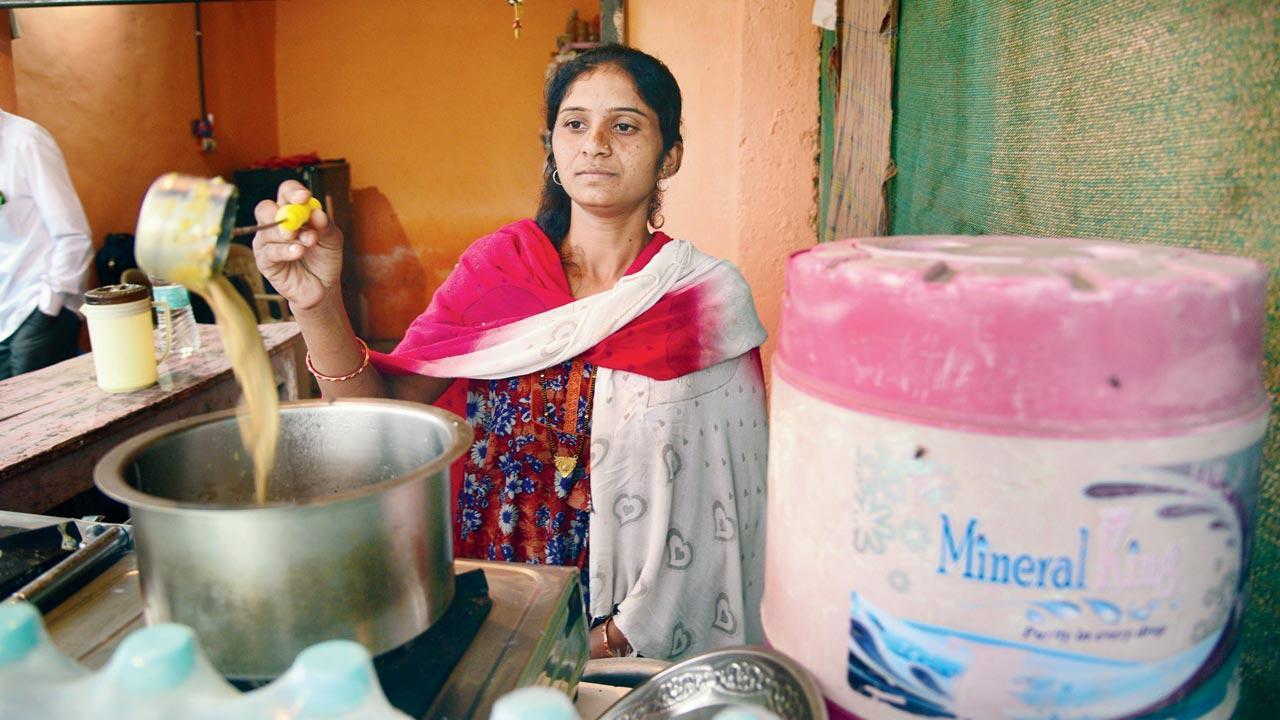
Jaya Datta Shinde, who lost her husband to kidney failure, was determined to build a life independently for her two children. She runs a tea stall-cum-tailoring shop in Pothare. Pics/Pradeep Dhivar
The rain-soaked jowar fields at Pothare in Karmala taluka of Solapur district are empty when this writer and mid-day photo journalist Pradeep Dhivar arrive early on a weekday afternoon, after a nine-hour journey from Mumbai. Caught in a downpour—the day an orange alert is issued for the neighbouring district of Kolhapur—the villagers have chosen to remain indoors. Except for 35-year-old Jaya Dutta Shinde, who we find at her tea stall.
ADVERTISEMENT
She is dressed in a printed cotton maxi; a dupatta wrapped around her shoulders. Shinde isn’t too pleased by our presence. She later tells us that she would have “dressed appropriately”—in a fine saree with bangles to match—if she had known we were expected. The only ornament on her is the mangalsutra. “My husband died three years ago due to kidney failure,” she says, as if already aware of what has brought us there. “The women in my village suggested that I continue to wear the tikli and mangalsutra to prevent unwanted attention from men.”
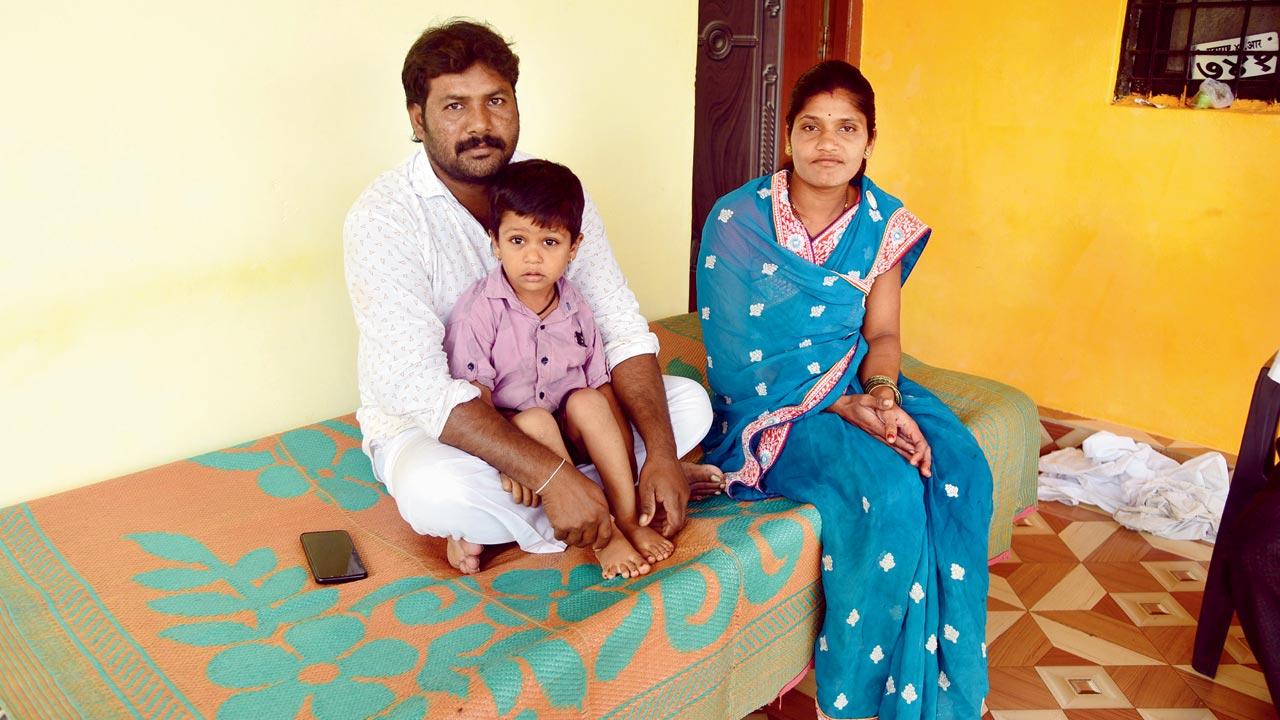 Madhuri Zinjade, who lost her husband in an accident, married Amol and has a three-year-old son, Samarth. She is the first widow to remarry and move into Pothare village
Madhuri Zinjade, who lost her husband in an accident, married Amol and has a three-year-old son, Samarth. She is the first widow to remarry and move into Pothare village
A mother of two, Shinde, determined to finance her family, took up a job as farm labourer before starting this tea stall-cum-tailoring shop in a space that belongs to the Gram Panchayat. “I also sell bangles,” she smiles.
Shinde represents a gradual change that has been brewing in Pothare. Not long ago, widows would be taunted for wearing the mangalsutra. “They’d say, ‘Why is she wearing it; usko navre ka sukh-dukh hai kya [she doesn’t have the good fortune of having a husband?]’.”
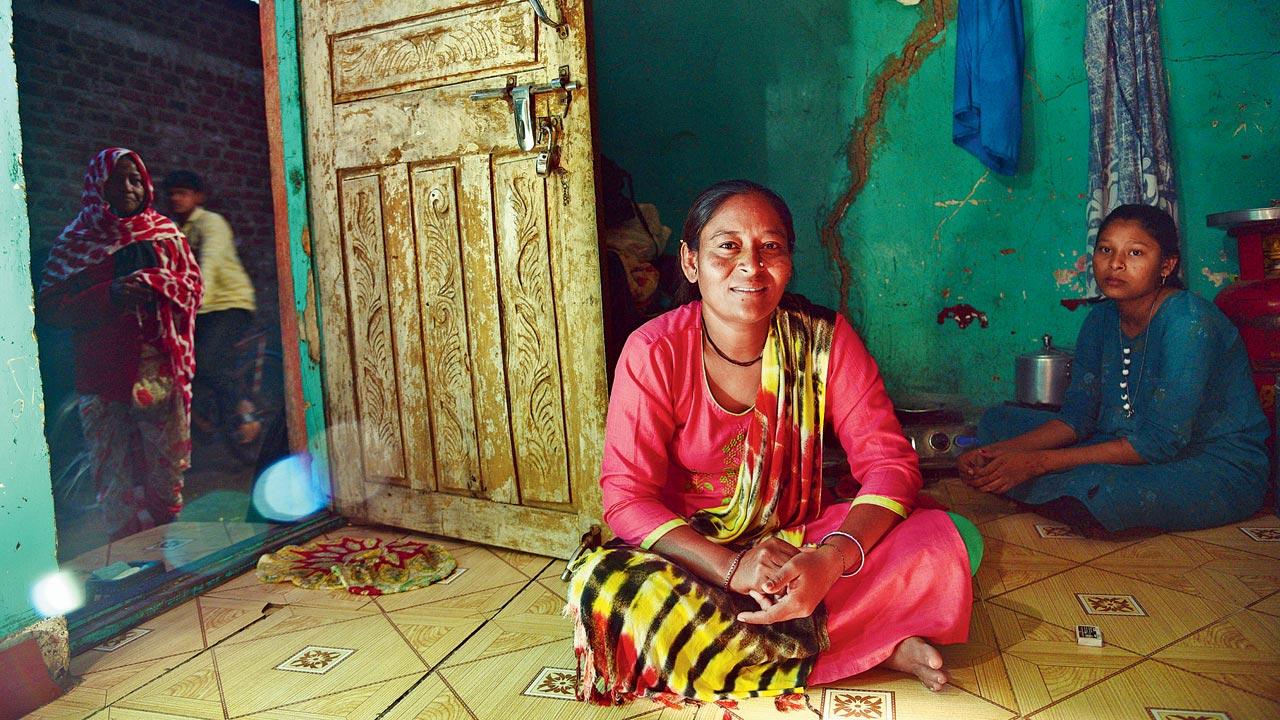 Kavita Vikas Jadhav, 33, who lost her husband to COVID-19 last year, says that after this year’s Vidhwa Samman, an initiative to honour widows initiated by Zinjade, people have once again begun inviting her to wedding ceremonies
Kavita Vikas Jadhav, 33, who lost her husband to COVID-19 last year, says that after this year’s Vidhwa Samman, an initiative to honour widows initiated by Zinjade, people have once again begun inviting her to wedding ceremonies
The loss of a husband meant that a woman would be subjected to demeaning rituals, wiping of the sindoor, removing the bindi, toe ring, bangles and mangalsutra. She’d have to stay out of all religious and social gatherings.
Last month, more than 5,000 of the 28,000-plus Gram Panchayats in Maharashtra unanimously agreed to ban widow customs that critics say, amount to denial of human rights. Of these, 103 villages belong to Sangola taluka of Solapur.
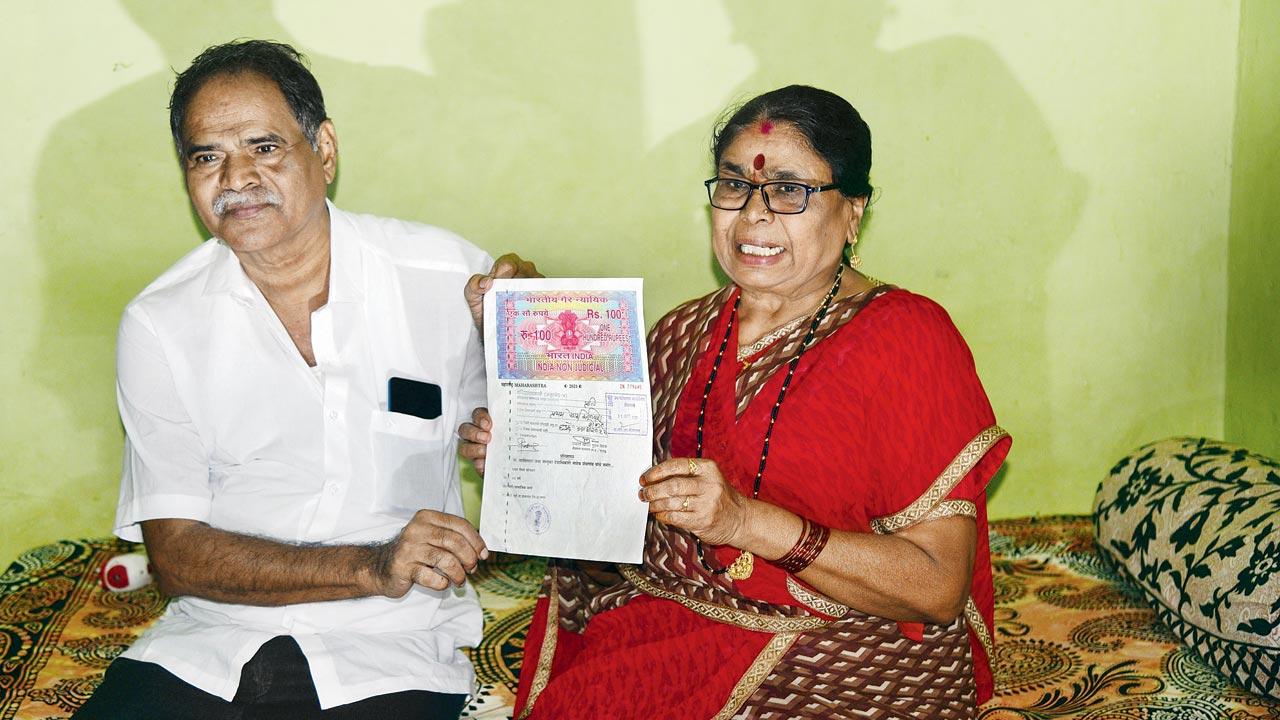 To ensure that his wife Alka doesn’t have to follow widow customs, Pramod Zinjade filed an affidavit with the Tehsil officer. “Soon, a few more men from the neighbouring village got similar affidavits prepared,” he says
To ensure that his wife Alka doesn’t have to follow widow customs, Pramod Zinjade filed an affidavit with the Tehsil officer. “Soon, a few more men from the neighbouring village got similar affidavits prepared,” he says
Pothare village is where the movement birthed. And its proponent is an inspiring 64-year-old. Pramod Zinjade, fondly called “Baba” by the residents, has been spearheading the movement against regressive traditions that marginalise women through his non-profit Mahatma Phule Samaj Seva Mandal. Set up in 1984, it worked for the rights of Scheduled Caste and Scheduled Tribes. It was during the Coronavirus pandemic that Zinjade turned his attention to women’s rights when a colleague passed away. “It had been barely 10 minutes since his pyre was lit, and a group of women huddled to strip his wife off his memories. I was shaken.”
When we meet him on that rainy morning, he is busy networking to gain support from the sarpanchs of nearby villages to allow widows to hoist the tricolour this August 15 when India celebrates 75 years of independence. He says he hasn’t made an inroad, but is hopeful.
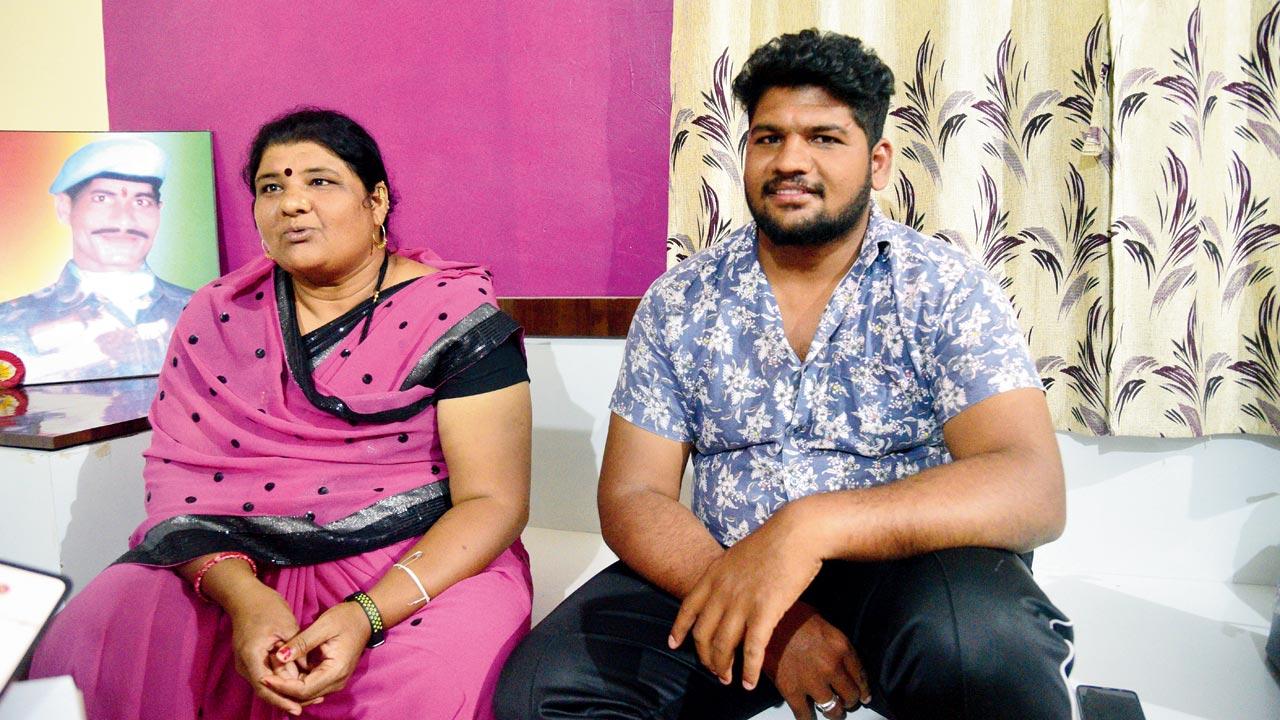 Sangita Bharat Kamble, former sarpanch of Pothare, was 18 and 24 weeks pregnant when she lost her husband, a soldier. Seen here with her son, Vikram, an agriculture engineering graduate
Sangita Bharat Kamble, former sarpanch of Pothare, was 18 and 24 weeks pregnant when she lost her husband, a soldier. Seen here with her son, Vikram, an agriculture engineering graduate
this year on Makar Sankranti, Zinjade had made an unsuccessful attempt at organising a haldi-kumkum ceremony that involved the participation of widows. It’s where traditionally, married women gather and exchange haldi (turmeric) and kumkum (vermilion powder) as a symbol of their married status and to pray for the health of their husbands. Widows typically stay out, as they do during the oti bharan, a patriarchal tradition that sees married women exchange saree-blouse along with coconut, haldi kumkum, bangles, mangalsutra and rice, hoping for a male child.
Zinjade wrote an open letter with suggestions on why and how the villagers should participate in supporting the effort. He posted it on WhatsApp groups hoping that men in a position of power, like sarpanchs, would take note. He says, “The message was shared widely... it went viral.”
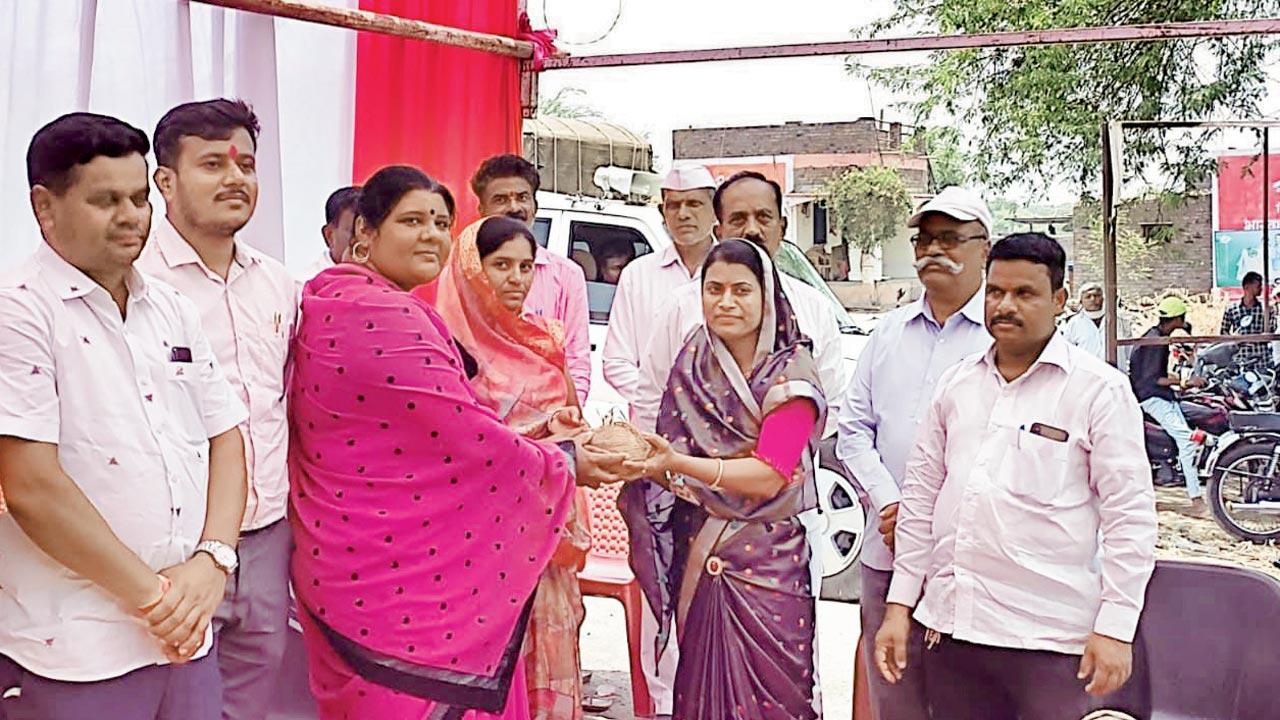 Kamble participating in the Oti Bharan ceremony, a ritual where married women exchange sarees, coconut, haldi-kumkum, bangles and rice, to pray for a male child. Earlier this year, activist Pramod Zinjade tried organising a haldi-kumkum event in Pothare and encouraged widows to participate for the first time
Kamble participating in the Oti Bharan ceremony, a ritual where married women exchange sarees, coconut, haldi-kumkum, bangles and rice, to pray for a male child. Earlier this year, activist Pramod Zinjade tried organising a haldi-kumkum event in Pothare and encouraged widows to participate for the first time
When yet another villager succumbed to diabetes, it was too close for comfort for Zinjade. “I am diabetic too. What if Alka [his wife] would have to suffer the same fate?” He prepared an affidavit that said he wanted his wife to continue living like any other married woman after he was gone. He shared the document with Sameer Mane, the tehsildar of Karmala taluka. “Soon, I heard that a few more men from a neighbouring village had got a similar affidavit prepared,” he tells us.
The Pothare Gram Panchayat passed a resolution banning customs that ostracise widows on May 31, 2022. Before this, two villages in Kolhapur district and one in Pune had done the same. Pothare, spread across 5,230 acres, and which, according to the 2011 village census had 3,882 residents, is home to nearly 50 widows. “We are hopeful that the Maharashtra government will pass a law that puts an end to these practices once and for all,” says Dhananjay Gopinath Zinjade, Pothare sarpanch. Deepak Kundalik Survashi, sarpanch of neighbouring Bhose, adds, “We are going to counsel families to get their daughters remarried, as well as encourage men to consider widows as life partners.”
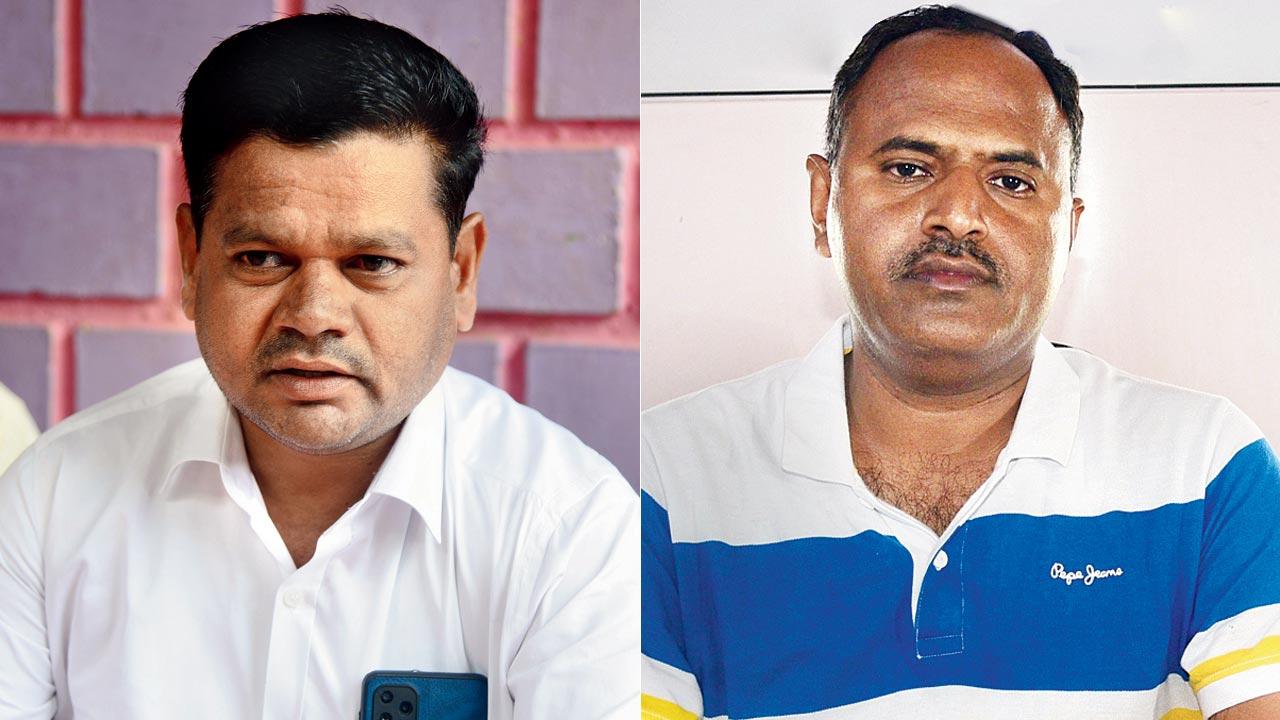 Dhananjay Gopinath Zinjade and Sameer Mane
Dhananjay Gopinath Zinjade and Sameer Mane
On May 18, the Rural Development Department of the Maharashtra government headed by Hasan Mushrif issued a circular asking Zilla Parishads and Gram Panchayats to do away with practices that marginalise widows. The move saw Women and Child Development Minister Yashomati Thakur, Baramati MP Supriya Sule and School Education Minister Varsha Gaikwad back the change.
Zinjade, who has reportedly said that he has got queries from other states that are keen to follows suit, has managed to receive government support especially because leaders see this as a legacy of social reform started by Jyotiba and Savitribai Phule, a couple that continues to be hailed for extraordinary reforms to end gender and caste-based discrimination as early as the 1800s. Especially remarkable was their effort to promote widow remarriage, urging barbers to refuse to tonsure the heads of widows, and setting an example by raising the son of a Brahmin widow as their own. Not very different from what Zinjade had tried to do during haldi-kumkum at Pothare, according to records, Savitribai had organised a get-together for women of all castes. The ceremony is one typically propagated by upper caste women. Gender and social reform was pursued later in Maharashtra by Gopalkrishna Gokhale, Lokmanya Tilak, Keshav Baliram Hedgewar and Vinoba Bhave. It’s this that led former President Ramnath Kovind to call Maharashtra the “karmabhoomi” of social reformers.
Social activist Mariam Dhawale, who is also general secretary of All India Democratic Women’s Association, lauds the government’s move, but says that the “resolution directing villages to ban the archaic widowhood practices says nothing about what a woman can do in case she still faces discrimination. There is no penal action.” She adds, “We live in a discriminatory society where women aren’t considered equal. They are seen as appendages, and never as individuals. Even recently, a judge [Justice Pratibha M Singh of the Delhi High Court] hailed Manusmriti [a vedic code of conduct to be an ideal Hindu], even though we all know that it is a Brahmanical patriarchal document that reinforces gender-related atrocities.”
Former sarpanch of Pothare, Sangita Bharat Kamble, 43, was in her teens when her husband, a soldier from Beed, was martyred in 1998. “I was 24 weeks pregnant,” Kamble tells mid-day. “My aaji [maternal grandmother] removed the tikli from my forehead, broke my bangles, took off my jodvi [toe rings], and broke the mangalsutra. I pleaded with her not to. I had never seen something like this before,” remembers Kamble, who was married right after her Class X exams.
She says she refused to cower. Gradually, she mustered the courage to once again put on the tikli, bangles, and a chain of black beeds sans mani and vati, which are integral to the Maharashtrian mangalsutra. The villagers criticised her but her parents welcomed her back home, took her along to social gatherings and provided the support she needed to bring up her child.
We are sitting in the drawing room of her home in Pothare. Kamble moved back from Beed in 1998 after her in-laws expressed the opinion that a woman as young as her would be more comfortable around her maternal family. Her son Vikram, now 24, sits before a portrait of his father. The family appears complete, even if in that moment. “The stripping of a woman’s identity is not fair. They aren’t just symbols of marriagehood; you see young girls wear bangles and tikli long before they are married. Why remove them then when the husband is no more?” Kamble, who likes to speak her mind, narrates an incident from a Veer Nari ceremony held to honour the widows of martyred military men. “We were handed sarees and bangles, but not haldi-kumkum. I asked them, if you claim that our martyred husbands are amar [immortal], why are you treating us as widows?”
A few kilometres from Kamble’s home, Madhuri Zinjade lives with her second husband Amol, three-year-old son Samarth and in-laws. “In 2015, I lost my husband to an accident. My parents decided to marry me again and an uncle found a match in Pothare,” says Madhuri, whom we catch early on the following day, while she is busy lighting the stove. Would she recommend other widows to marry again? “Yes,” she says instantly. “Our society isn’t kind to widows. I wasn’t allowed to attend any auspicious event. It was only after I remarried that I was called to a wedding. They still don’t include me in the haldi-kumkum ceremony. Thankfully, the women of my family have been inclusive.”
All the women we meet debate the purpose of shrigaar or adornment. “Why must we dress up only for our husbands? Whether married, remarried or widowed, we should be allowed to dress the way we like. We should all have the right to look and feel beautiful,” Madhuri thinks.
Although happy with her new family, she admits that remarriage has come at a price. Mayur, her son from the earlier marriage, now lives with her mother. “I pay him a visit as often as I can. He is now in Class III,” she says, remorsefully.
It might not be an ideal situation but the women agree that every privilege fought for and earned is worth it. Kavita Vikas Jadhav, 33, who lost her husband, an autorickshaw driver, to COVID last year, says that hardly anyone had turned up for his funeral. “I removed the tikli, broke my bangles and mangalsutra myself.” Tears are tough to hold back for the mother of three. Jadhav didn’t step out of home for a year. “But after this year’s Vidhwa Samman [respect for widows] programme, people have started calling me to family functions. It feels good when somebody comes over to invite me. I can’t comment on what’s unfolding in other villages, but here, I am now allowed to participate in the oti
Vikram holds a BTech degree in Agriculture Engineering from an institute in Kolhapur but Kamble feels that her son would have had a better future had he studied at an Army school. She could have pursued a course or taken up a job via the vocational training grant and reservation in jobs offered to widows of soldiers martyred, but Kamble says she was too young to make an independent decision.
Her chance was lost, she knows, and in a sort of make-good move, she has turned into a voice of reason for women of the village. “I encourage women to remarry. It is a long life and society isn’t kind to single women. I ask them to make their own decisions.” Does she regret not marrying? “To be honest, it didn’t occur to me then and for many, many years after. But of late, especially when I am sick, I feel it would have been nice to have someone ask, ‘how are you feeling?’”
50
No. of widows in Pothare village
 Subscribe today by clicking the link and stay updated with the latest news!" Click here!
Subscribe today by clicking the link and stay updated with the latest news!" Click here!







